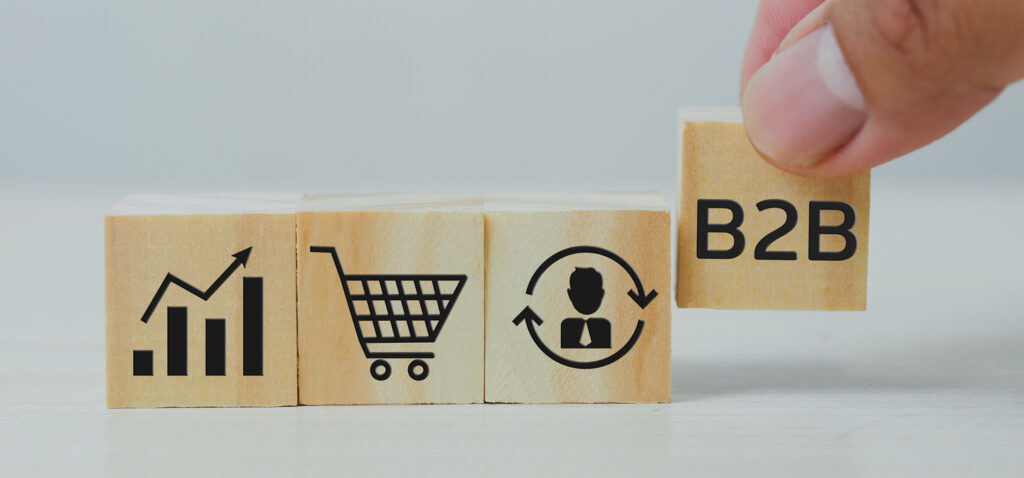Why ecommerce? 10 reasons you should choose it for your business
Looking for a product or brand online and checking reviews is practically a standard. A company website plays the role of the shop window, drawing the attention of potential customers and presenting your brand to the world. A well-structured ecommerce website brings you more customers and makes you stand out. Making your goods available online increases your chances of selling them to a significantly higher number of people; in fact, data from OptiMonster shows that 93.5% of global internet users have bought products online.
Online presence supports your business and helps with brand awareness and promotion. You are more visible to potential customers. Therefore, more people visit your ecommerce store or hear about your brand, then buy your products or services and recommend them to others by leaving reviews or sharing their experience on social media. This way, you win loyal customers across the globe whilst running a business from home. You are not limited to your local market.
If you run a small to medium enterprise and are still hesitating about investing in digital transformation, here is a comprehensive list describing the most significant ecommerce benefits.
A comprehensive guide to the ecommerce challenges in times of crisis
Download the ebookUnderstanding ecommerce
What is an ecommerce business?
An ecommerce business is a company that buys and sells goods or services online. These businesses operate through various digital channels, including websites, mobile apps, social media platforms, and online marketplaces. Whether it’s a small startup or a large global enterprise, ecommerce businesses leverage the power of the internet to reach a broad audience. For instance, software companies offer digital products and services online, clothing brands sell their latest collections through ecommerce websites, and subscription-based services provide ongoing value to their customers via online platforms. The flexibility and reach of ecommerce make it an attractive option for businesses of all sizes.
Brief history of ecommerce
The concept of ecommerce has been around for decades, but it truly gained momentum with the rise of the internet in the 1990s. Early pioneers like Amazon and eBay revolutionised how people shop, making online shopping a novel and exciting experience. Initially, consumers were intrigued by the convenience of buying products from the comfort of their homes, but worries about security and the reliability of shipping were common. Over time, advancements in technology and logistics addressed these concerns, paving the way for the explosive growth of online sales. Today, ecommerce is a dominant force in the retail industry, continually evolving to meet the needs of modern consumers.
Types of ecommerce models
Ecommerce encompasses various business models, each catering to different market needs:
- B2C (Business-to-Consumer): This model involves businesses selling directly to consumers. Companies create user-friendly websites and mobile apps to provide a seamless shopping experience. Examples include online retailers like Amazon or brands with their own ecommerce sites.
- B2B (Business-to-Business): In this model, businesses sell products or services to other companies. Ecommerce platforms cater to the unique needs of B2B transactions, offering features like bulk ordering and customised pricing. Examples include wholesale suppliers and manufacturers.
- C2C (Consumer-to-Consumer): Platforms like eBay and Etsy enable individuals to sell products to other consumers. This model has created opportunities for people to become entrepreneurs and monetise their skills and possessions.
- C2B (Consumer-to-Business): This less common model involves consumers selling products or services to businesses. Freelance platforms like Upwork and Fiverr allow businesses to access diverse expertise from independent professionals.
Each of these models leverages the power of ecommerce platforms to connect buyers and sellers, making it easier to conduct business online.
Let’s dive into the benefits of running an ecommerce business.
1. Increased sales
24/7/365 availability of goods and unlimited customer reach generate more sales. An ecommerce company leverages advanced technology to facilitate transactions and enhance customer relationships. When you aren’t limited to the local market or to physical store capacity, you automatically sell more and can adjust your stock to your customers’ needs. You can provide your services or sell goods abroad by adjusting prices to the global market. By spending less of your budget running a store and making more capital simultaneously, you can save a significant amount of money and expand your business faster.
2. Reduced operational expenses
Ecommerce is the most economical way to grow your retail business. It doesn’t require high levels of initial capital, and it’s very cost-effective. Most of the investment is repaid by early sales profits.
From a long-term perspective buying a domain and hosting or paying for web development and good ecommerce service is less expensive than buying or renting physical business premises. Some ecommerce platforms provide sellers with drop-shipping services, which helps cut storage and delivery expenses. Chatbots can support you with customer enquiries, and automation keeps all the inventory and finances in one place, so you don’t have to spend money on additional software.
3. Increased availability of products and services
With products and services listed online, retailers have a better chance to reach out their customers and promote their businesses. Your products and services are constantly visible as ecommerce platforms offer online listings and price comparisons. Moreover, you can serve those who couldn’t find items locally and decided to turn to the internet to source the product. As websites are visual, online stores also give you limitless opportunities to present your items in an aesthetically pleasing way and stand out from the crowd.
4. A broader range of customers
There is no doubt that ecommerce platforms help sellers reach buyers globally and sell their goods in the broader market. You’re scaling the business globally, and being online means that you can sell to people all over the world. There is no limit to whom and where you reach. Broadening your business horizons not only earns you more money but helps your business grow.
5. Simplified buying process
The most convenient aspect of ecommerce is that the customer can purchase directly from you after searching for an item online, without leaving home or interacting with a salesperson. Consumers expect goods to be available instantly, e-stores answer that needs. Because buying online doesn’t require a visit to a retail store and products can be shipped from any place in the world, consumers aren’t limited to shops in their local vicinity and spend less time shopping. That’s what makes ecommerce an attractive alternative for them. As a retailer, you need to meet them online and give them what they’re looking for.
6. Automation
Ecommerce platforms offer full automation, including finance systems, inventory, shipping and customer service. That means everything is in one place and can easily be managed by one person at their convenience. Chatbots can help you out with most enquiries, and artificial intelligence provides a personal touch into this communication. These simple solutions give you more time to grow your business and keep your customers happy at the same time, and all of this without hiring additional team members.
7. Benefits from customer satisfaction and advocacy
Word-of-mouth marketing works very well online and helps spread the word about your brand globally. People depend heavily on reviews and others’ opinions. They are more likely to buy a particular product from a specific seller if it was recommended by someone famous, someone they know or someone they can identify with. The Digital Marketing Institute shows that 49% of consumers rely on influencer recommendations, and 40% have purchased goods after seeing them on social media.
8. Lower advertising costs
Customer advocacy and increased brand awareness help reduce marketing and advertising costs. As word spreads quickly on the internet, you can reach potential customers with every review of your product or opinion about your brand left on Google or other independent consumer review websites. Moreover, product listings on ecommerce platforms make your goods visible to a potential customer. Your products can be showcased using photos, video banners or GIFs. There is an entire set of affordable tools available for you to promote your products. Also, ecommerce platforms are very well positioned in Google, and the algorithms ensure that whatever is listed on websites will be ranked highly in the search results.
9. Flexibility
According to KPMG, the main reason people buy online is that they can do it whenever they want from anywhere on the planet. This feature makes the shopping experience very easy and convenient. It allowed ecommerce websites to thrive during the pandemic when people were stuck at home, unable to buy in physical stores. But it’s not just buyers who benefit from ecommerce flexibility. Solutions like service automation or AI software give retailers more freedom when selling online.
10. Data analytics of consumer behaviour
Imagine being able to predict what and when will be bought from you. Imagine you can tailor your offer to each customer’s needs. Imagine if you could guide your customers to buy certain products. These things aren’t entirely possible when running a physical store but can be achieved with an online store. Various analytics tools and the newest AI software give you insights into consumer buying habits and help you not only personalise the offer but also respond quickly to your customer’s needs and changing trends. That’s one small step towards greater sales.
How to start an ecommerce business?
Start with finding product opportunities and choosing what to sell. Identifying the right product options is essential for building a successful eeommerce store. Here are some key strategies to help you get started:
- Research online marketplaces: Use platforms like Amazon and eBay to find high-demand products and analyse customer reviews.
- Leverage social media: Observe trends on social media and note which products influencers are promoting.
- Identify market gaps: Look for unmet needs where you can introduce a unique product to solve a problem.
- Use analytical tools: Tools like Google Trends can provide insights into popular products and evolving demand.
When making the final decision, consider:
- Competition: Assess how saturated the market is.
- Demand: Ensure there is strong demand for the product.
- Profitability: Calculate potential profit margins, including production and shipping costs.
- Target audience: Understand your audience’s needs to tailor your product effectively.
By evaluating these factors, you can select a product with high potential and set the foundation for a successful ecommerce business.
Are you looking for support in launching an ecommerce platform? Here, you can check out our ecommerce solutions and digital transformation services.
About the author
Recommended articles
Contact us




